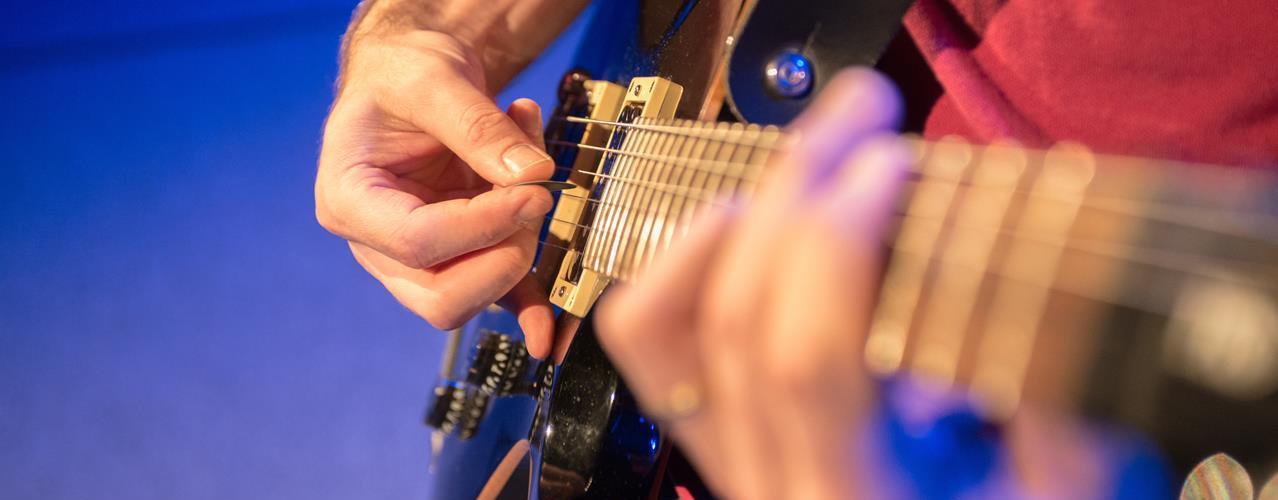
Best Electric Guitars – All Categories
| Guitar Model | ||||
|---|---|---|---|---|
 | Best Overall | Fender Vintera 60s Modified Stratocaster |  (4.9 / 5) (4.9 / 5) | Check on Amazon |
 | Best Beginners | Yamaha Pacifica 112V |  (4.9 / 5) (4.9 / 5) | Check on Amazon |
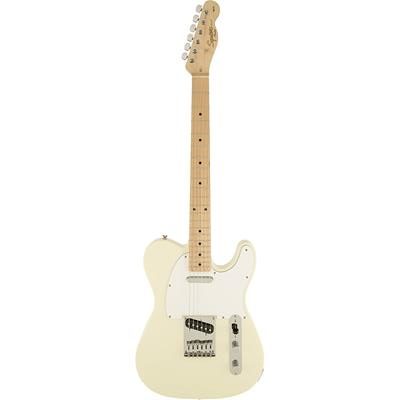 | Best Under $300 | Squier Affinity Series Telecaster |  (4.8 / 5) (4.8 / 5) | Check on Amazon |
 | Best Under $500 | PRS SE CE 24 Standard Satin |  (4.9 / 5) (4.9 / 5) | Check on Amazon |
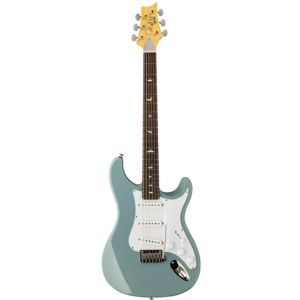 | Best Under $1000 | PRS SE Silver Sky |  (4.9 / 5) (4.9 / 5) | Check on Amazon |
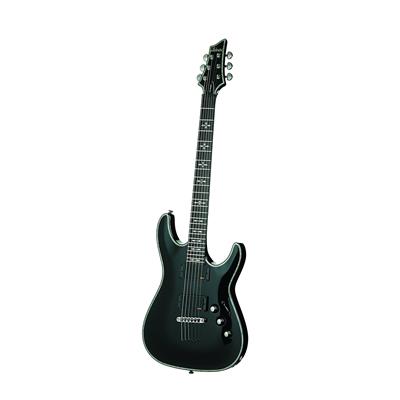 | Best for Metal | Schecter Hellraiser C1 |  (4.9 / 5) (4.9 / 5) | Check on Amazon |
 | Best for Blues | Epiphone Casino |  (4.8 / 5) (4.8 / 5) | Check on Amazon |
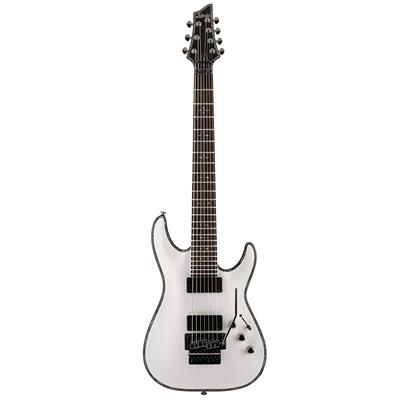 | Best 7 String | Schecter Hellraiser C7 |  (4.9 / 5) (4.9 / 5) | Check on Amazon |
 | Best Hollow Body | Gretsch G5422TG Electromatic |  (4.8 / 5) (4.8 / 5) | Check on Amazon |
Best Overall Electric Guitar
Fender Vintera II 60s Stratocaster
| Build Quality: |  |
| Hardware: |  |
| Electronics: |  |
| Sound: |  |
| Value: |  |
| Average: |  |

Price Range: $800-$900 | Best For: Versatile players, gigging musicians
The Fender Vintera II 60s Stratocaster stands as our top pick for the best overall electric guitar. This exceptional instrument combines classic Fender tone with modern reliability, making it perfect for players across all skill levels and musical genres.
Key Features:
- Alder body with gloss polyester finish
- Maple neck with early ’60s “C” profile
- Rosewood fingerboard with 21 vintage-style frets
- Three Pure Vintage ’65 single-coil Stratocaster pickups
- Vintage-style synchronized tremolo bridge
Why We Love It: The Vintera II delivers authentic 1960s Stratocaster tones with crystal-clear highs, present mids, and tight lows. The comfortable neck profile suits most hand sizes, while the vintage-voiced pickups provide that iconic Strat “chime” and “spank” that made legends like Hendrix and Gilmour famous.
Perfect For: Rock, blues, pop, country, indie, and virtually any genre requiring versatile single-coil tones.
Pros:
✅ Authentic vintage tone
✅ Excellent playability
✅ Versatile across genres
Cons:
❌ Limited high-gain capability – Single-coil pickups struggle with heavy metal and extreme distortion
Best Electric Guitars for Beginners
Yamaha Pacifica 112V
| Build Quality: |  |
| Hardware: |  |
| Electronics: |  |
| Sound: |  |
| Value: |  |
| Average: |  |

The Yamaha Pacifica 112V consistently ranks as one of the best beginner electric guitars due to its exceptional tone, versatility, and build quality. Featuring an HSS pickup configuration, this guitar can handle clean tones, bluesy overdrive, or heavier distortion with ease.
Key Features:
- Chambered mahogany body
- Bolt-on maple neck
- Rosewood fingerboard
- Bridge humbucker and two single coils
- Lightweight
The smooth maple neck, comfortable body shape, and responsive hardware make it a joy to play for beginners and intermediate players alike. Its tuning stability and solid alder body give it a premium feel without the premium price tag.
Pros:
✅ Excellent build quality and tone
✅ Versatile pickup configuration
✅ Comfortable neck and lightweight
Cons:
❌ Slightly more expensive than budget bundles
Best Budget Electric Guitars Under $300
Squier Affinity Telecaster
| Build Quality: |  |
| Hardware: |  |
| Electronics: |  |
| Sound: |  |
| Value: |  |
| Average: |  |

Price Range: $250-$320 | Rating: ⭐⭐⭐⭐☆
A fantastic entry point into the world of Telecasters, offering classic twang and versatility at an unbeatable price.
Key Features:
- Poplar body
- Maple neck with modern “C” profile
- Laurel fingerboard
- Two standard single-coil Telecaster pickups
- 6-saddle string-through-body hardtail bridge
Pros:
✅ Simple Reliable Design
✅ Classic Telecaster Twang
✅ Excellent upgrade platform
Cons:
❌ Basic Hardware
Best Electric Guitars Under $500
PRS SE CE 24 Standard Satin
| Build Quality: |  |
| Hardware: |  |
| Electronics: |  |
| Sound: |  |
| Value: |  |
| Average: |  |

Price Range: $450-$500 | Rating: ⭐⭐⭐⭐⭐
Incredible value from PRS, offering professional-grade features and tones at an accessible price point.
Key Features:
- Mahogany body with satin finish
- Bolt-on maple neck
- Rosewood fingerboard with bird inlays
- PRS-designed humbuckers with coil-tap
- PRS patented tremolo bridge
Pros:
✅ Exceptional build quality
✅ Coil-tap versatility
✅ Professional appointments
Cons:
❌ No maple cap – Lacks the premium maple top of higher-end PRS models
Best Electric Guitars Under $1000
Paul Reed Smith 6 String SE Silver Sky
| Build Quality: |  |
| Hardware: |  |
| Electronics: |  |
| Sound: |  |
| Value: |  |
| Average: |  |

The PRS SE Silver Sky is a killer Strat-style guitar that totally lives up to the hype. Designed with John Mayer, this SE version brings that boutique feel to a much more affordable price point. Right out of the box, it feels smooth and easy to play.
Key Features:
- Mahogany body with satin finish
- Bolt-on maple neck
- Rosewood fingerboard with bird inlays
- PRS-designed humbuckers with coil-tap
- PRS patented tremolo bridge
Pros: ✅ Comfortable, easy-to-play neck Cons: ❌ No locking tuners included stock
✅ Great build quality for the price
✅ Clear, expressive single-coil tones
Best Electric Guitar for Metal
Schecter Hellraiser C-1
| Build Quality: |  |
| Hardware: |  |
| Electronics: |  |
| Sound: |  |
| Value: |  |
| Average: |  |

Price Range: $1000-$1100 | Rating: ⭐⭐⭐⭐⭐
Designed for maximum sustain and aggressive tones with active EMG pickups.
Key Features:
- Mahogany body with quilted maple top
- Set mahogany neck
- Ebony fingerboard with gothic cross inlays
- EMG 81/60 active humbucker pickups
- Tune-o-matic bridge with string-thru design
Pros:
✅ Active EMG pickups
✅ Stunning aesthetics
✅ Maximum sustain – Set neck construction and hardware optimize resonance
Cons:
❌ Battery dependency – Active pickups require 9V battery maintenance
Best Electric Guitar for Blues
Epiphone Casino Archtop Hollowbody
| Build Quality: |  |
| Hardware: |  |
| Electronics: |  |
| Sound: |  |
| Value: |  |
| Average: |  |

Price Range: $650-$750 | Rating: ⭐⭐⭐⭐⭐
Fully hollow body construction delivers warm, resonant tones perfect for blues and jazz.
Key Features:
- Fully hollow laminated maple body
- Mahogany neck with SlimTaper profile
- Rosewood fingerboard with parallelogram inlays
- Two P-90 single-coil pickups
- Tune-o-matic bridge with trapeze tailpiece
Pros:
✅ Semi-hollow design – Perfect balance of acoustic warmth and electric sustain
✅ Legendary blues tone – The sound that defined blues guitar for generations
✅ Classic Style
Cons:
❌ Feedback susceptibility – Hollow body can cause feedback issues at high volumes
Best 7 String Electric Guitar
Schecter Hellraiser C-7 with Floyd Rose and Sustainiac
| Build Quality: |  |
| Hardware: |  |
| Electronics: |  |
| Sound: |  |
| Value: |  |
| Average: |  |

Active EMG pickups deliver crushing 7-string tones for extreme metal and djent.
Key Features:
- Mahogany body with quilted maple top
- Set mahogany neck
- Ebony fingerboard with gothic cross inlays
- EMG 707 active humbucker pickups
- Floyd Rose
Pros:
✅ Build Quality
✅ Amazing Pickups & Sustainiac
✅ Beautiful classic design
Cons:
❌ Tone Flexibility
Best Hollow Body Electric Guitar
Gretsch G5422TG Electromatic
| Build Quality: |  |
| Hardware: |  |
| Electronics: |  |
| Sound: |  |
| Value: |  |
| Average: |  |

When I say “Les” you say “Paul”! Les!.. Ok don’t make me wait so long. Don’t make the Epiphone Les Paul-100 wait either. This guitar is way too iconic and way too much of a pop culture iconic on its own for you to keep ignoring it. I mean, look at it. At its handsome face and a body you can’t tear your eyes away from. The long fretboard that simply beckons to you, asks you to play it just right. Listen to its song, its beckoning tones and it’s sweet, sweet sound. Yes, now you understand why the entirety of the world went crazy for this guitar in one day. Well not this one specifically, saying so would be an insult to the inventor Les Paul, but this guitar has everything this man valued in his guitars. The body is made of standard basswood, with the fretboard being, just like so many others, rosewood. The pickups are the ever sustained humbuckers for the little bit of “umph” we all love in our sound. The style is unique.
Pros:
✅ Great High Tones
✅ Solid Tuning Stability
✅ Beautiful classic design
Cons:
❌ Struggles with higher gain effects and feedback
Electric Guitar Buying Guide
Understanding Pickup Types
Single-Coil Pickups:
- Bright, clear tone with excellent note definition
- Classic “twang” and “chime” characteristics
- Found in Stratocasters and Telecasters
- Best for: Blues, country, pop, indie rock
- Pros: Articulate, cutting tone
- Cons: Can be noisy with high gain
Humbucker Pickups:
- Warmer, fuller tone with higher output
- Cancels electrical noise (hence “hum-bucker”)
- Found in Les Pauls and many metal guitars
- Best for: Rock, metal, jazz, hard rock
- Pros: Powerful, warm tone; noise-free
- Cons: Can be muddy; less note definition
P-90 Pickups:
- Between single-coils and humbuckers
- Gritty, growling character
- Single-coil construction but larger than Strat pickups
- Best for: Rock, punk, blues, garage rock
- Pros: Unique character; powerful yet clear
- Cons: Can be noisy like single-coils
Body Wood Guide
Alder:
- Balanced tone across all frequencies
- Lightweight yet resonant
- Used by Fender for most Stratocasters and Telecasters
- Sound: Bright highs, present mids, tight lows
Mahogany:
- Warm, rich tone with emphasis on mids and lows
- Heavier than alder
- Used by Gibson for Les Pauls
- Sound: Warm, sustaining, great for rock and metal
Basswood:
- Lightweight and affordable
- Relatively neutral tone
- Common in budget guitars
- Sound: Balanced but can lack character
Maple:
- Very bright, articulate tone
- Dense and heavy
- Often used for tops rather than full bodies
- Sound: Bright, snappy, excellent note definition
Neck Profiles Explained
C-Shape:
- Most common and comfortable for most players
- Rounded back, medium thickness
- Good for all playing styles
U-Shape:
- Thicker, more vintage feel
- Preferred by players with larger hands
- Common on 1950s-style guitars
V-Shape:
- Distinctive ridge down the back of the neck
- Vintage 1950s specification
- Love-it-or-hate-it feel
Modern C:
- Slightly flatter than vintage C
- Fast playing for modern techniques
- Common on contemporary guitars
Bridge Types
Fixed Bridge (Hardtail):
- Maximum sustain and tuning stability
- No vibrato arm
- Easy to maintain
- Best for: Rock, metal, punk
Tremolo/Vibrato Bridge:
- Allows pitch bending with vibrato arm
- Classic Fender synchronized tremolo
- Requires more setup and maintenance
- Best for: Surf, indie, classic rock
Floyd Rose:
- Double-locking tremolo system
- Extreme pitch bending capabilities
- Complex setup and string changing
- Best for: Metal, shred, prog rock
Scale Length Impact
25.5″ (Fender Scale):
- Brighter, more articulate tone
- Higher string tension
- Better for clean tones and single-coil pickups
24.75″ (Gibson Scale):
- Warmer, fuller tone
- Lower string tension (easier bending)
- Better for thick, sustaining tones
What to Look for When Buying
Build Quality Checklist:
- Smooth fret ends with no sharp edges
- Proper neck relief and action
- Clean finish with no obvious flaws
- Solid hardware that doesn’t rattle
- Electronics that work without crackling
Playability Factors:
- Comfortable neck profile for your hand size
- Action height that allows clean fretting
- Proper intonation across all frets
- Smooth tuners that hold pitch
- Bridge that suits your playing style
Tonal Considerations:
- Pickup type matches your preferred genres
- Body wood complements your amp and effects
- Scale length suits your playing style
- Overall sound inspires you to play
Setting Up Your First Electric Guitar
Essential First Steps:
- Tune the guitar using an electronic tuner
- Adjust the action (string height) if needed
- Check intonation at the 12th fret
- Ensure proper neck relief with a small forward bow
- Test all electronics including pickup selector and tone controls
When to See a Professional:
- Sharp or uneven frets
- Significant action problems
- Electronics issues
- Structural problems
- Major intonation issues
Amplification Considerations
Your electric guitar is only as good as the amplifier you play it through. Consider these factors:
For Home Practice:
- 10-20 watt combo amps
- Built-in effects
- Headphone outputs
- USB connectivity for recording
For Gigging:
- 50+ watt tube or modeling amps
- Reliable construction
- Multiple channels
- Effects loop
Popular Beginner Amp Recommendations:
- Fender Frontman series
- Marshall MG series
- Boss Katana series
- Blackstar ID:Core series
Maintenance and Care
Regular Maintenance:
- Change strings every 2-3 months or when they sound dull
- Clean the guitar body and fretboard regularly
- Keep in a proper case or on a stand
- Store in stable temperature and humidity
Cleaning Tips:
- Use guitar-specific cleaners and polishes
- Microfiber cloths prevent scratches
- Clean fretboards with appropriate oils
- Wipe strings after playing to extend life
When to Service:
- Annual setup by a professional
- When tuning becomes unstable
- If action becomes uncomfortable
- Electronics start crackling
- Frets show significant wear
Frequently Asked Questions
What’s the best electric guitar for a complete beginner?
For complete beginners, we recommend the Squier Classic Vibe 60s Stratocaster. It offers authentic Fender tones, excellent build quality, and a comfortable neck that’s easy to learn on. The versatile single-coil pickups work well for multiple genres, and the guitar holds its value well as you progress.
How much should I spend on my first electric guitar?
For your first electric guitar, budget $300-500 for the instrument alone. This range offers excellent quality instruments that will last for years and inspire you to keep playing. Avoid guitars under $200 unless buying a complete starter kit, as they often have playability issues that can frustrate beginners.
Do I need an amplifier with my electric guitar?
Yes, electric guitars require amplification to reach their full potential. For beginners, a small 10-20 watt practice amp is sufficient. Many starter packages include a basic amplifier, which is a great way to get everything you need in one purchase.
What’s the difference between single-coil and humbucker pickups?
Single-coil pickups produce bright, clear tones with excellent note definition but can be noisy with high gain. Humbuckers offer warmer, fuller tones with higher output and no noise, making them preferred for rock and metal. The choice depends on your preferred musical styles.
Should I buy online or from a local store?
Both have advantages. Online retailers like Amazon offer competitive prices and vast selection, while local stores allow you to try before you buy and offer setup services. If buying online, ensure the retailer offers good return policies and consider having the guitar professionally set up after purchase.
How often should I change my guitar strings?
Change strings every 2-3 months with regular playing, or when they start sounding dull and losing intonation. New strings dramatically improve your guitar’s tone and playability. Always change all strings at once rather than individual strings.
What accessories do I need with my first electric guitar?
Essential accessories include:
- Guitar amplifier (10-20 watts for home practice)
- Guitar cable to connect to the amp
- Guitar picks (various thicknesses)
- Electronic tuner
- Guitar strap for standing play
- Guitar case or gig bag for protection
- Extra strings
Can I learn electric guitar without learning acoustic first?
Absolutely! Many successful guitarists started directly on electric guitar. Electric guitars often have lower string action and thinner necks, which can actually be easier for beginners to play. The choice between acoustic and electric should be based on the music you want to play.
How do I know if a guitar needs a professional setup?
Signs your guitar needs professional attention:
- High action making it difficult to play
- Buzzing frets or unclear notes
- Poor intonation (notes sound out of tune up the neck)
- Sharp fret ends that scratch your hands
- Electronics that crackle or don’t work properly
What’s the best way to learn electric guitar?
The most effective approach combines:
- Structured lessons (online or in-person)
- Regular practice (even 15-20 minutes daily)
- Learning songs you enjoy
- Playing with others when possible
- Watching online tutorials for specific techniques
Many guitars come with free online lesson subscriptions, which are excellent for beginners.
Conclusion
Choosing the best electric guitar depends on your individual needs, budget, and musical goals. Whether you’re drawn to the versatile tones of a Stratocaster, the powerful humbuckers of a Les Paul, or the unique character of a hollow body guitar, there’s never been a better time to start your electric guitar journey.
Remember that the “best” guitar is the one that inspires you to play every day. While our recommendations provide excellent starting points, trust your ears and hands when making the final decision. A guitar that feels comfortable and sounds good to you will always be the right choice.
Don’t forget that your electric guitar is just one part of your sound – a good amplifier, proper setup, and regular practice are equally important for achieving great tone and becoming the guitarist you want to be.
Start with one of our recommended instruments, dedicate time to regular practice, and enjoy the incredible journey of electric guitar mastery. The right guitar isn’t just an instrument – it’s your gateway to musical expression and creativity.
Ready to start playing? Check out our top recommendations on Amazon and begin your electric guitar adventure today!
This guide is updated regularly to reflect current market conditions, pricing, and product availability. All recommendations are based on extensive research, expert testing, and real user feedback from guitarists of all skill levels.
Why not check out some other articles…

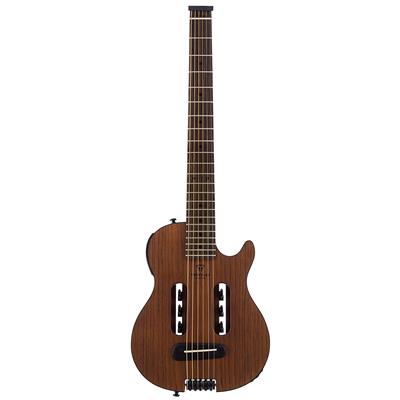
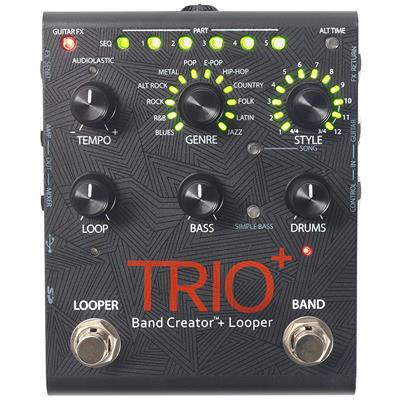

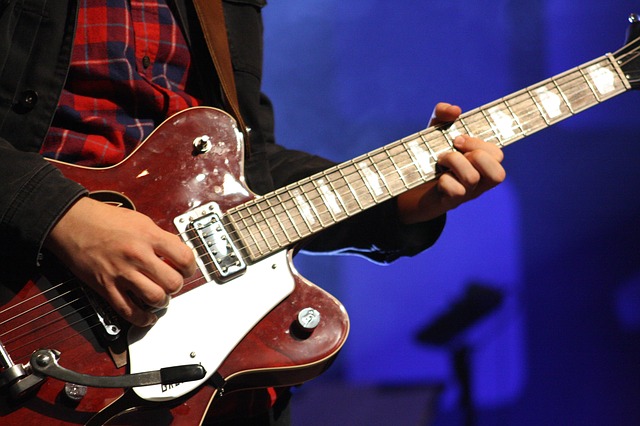
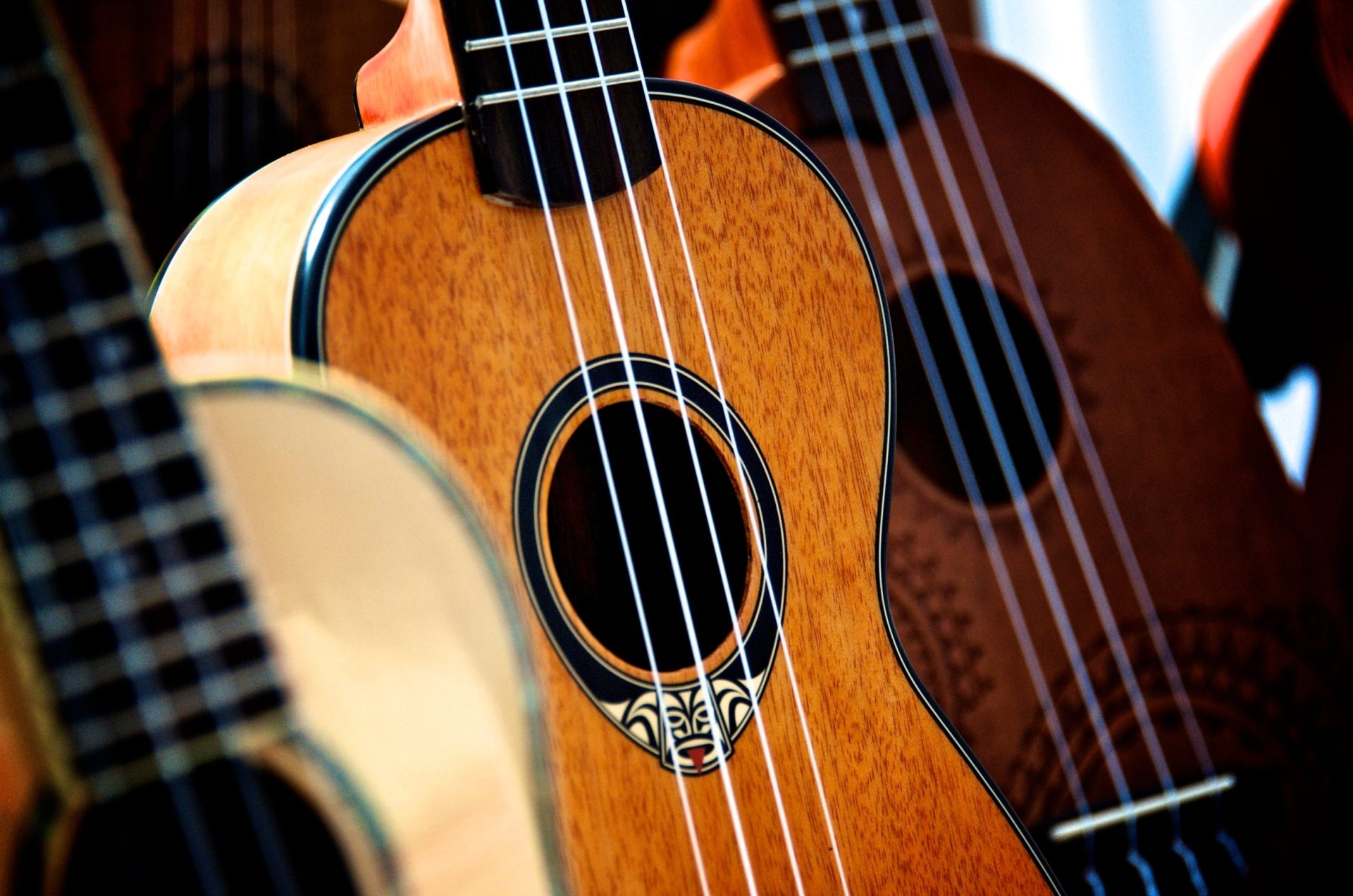

Thanks for this amazing best guitar reviews! It really help me to narrow down the best one.